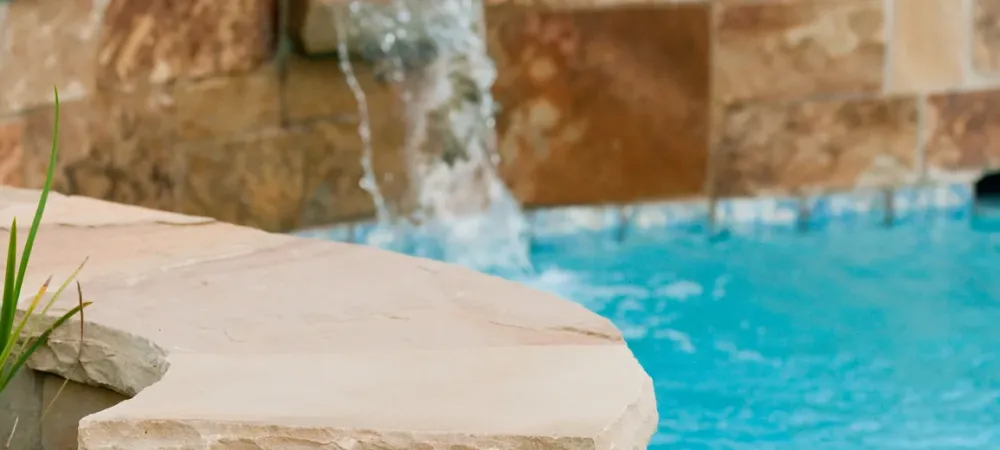
Saltwater vs. Chlorine Pools: Which Is Better for Your Home?
Saltwater and chlorine pools both keep water safe by sanitizing with chlorine. The difference is delivery. Traditional systems add chlorine directly, while salt systems generate chlorine from dissolved salt through a cell. Saltwater usually feels gentler and automates dosing, but the cell needs periodic cleaning and eventual replacement. Chlorine systems cost less upfront and are simple to service. The best choice depends on budget, comfort preferences, and how hands-on you want to be.
What Is The Difference Between Saltwater and Chlorine Pools?
Both systems sanitize with chlorine to kill algae and bacteria. A traditional chlorine pool relies on manual additions like liquid chlorine or tablets. A saltwater pool uses a salt chlorine generator that converts dissolved salt into chlorine as water passes through a cell. Understanding how each delivers sanitizer helps you compare costs, maintenance routines, and day-to-day experience.
Key Benefits of Choosing the Right System
- Comfort and water feel. Many swimmers prefer the smoother feel of saltwater and notice less eye and skin irritation when chemistry is well-balanced.
- Maintenance style. Salt systems automate dosing for steadier sanitizer levels. Traditional chlorine gives you direct control with simple, inexpensive components.
- Cost alignment. Salt systems tend to reduce routine chemical purchases over time. Traditional chlorine keeps initial project cost down.
- Fit for features. Spas, tanning ledges, water features, and extended daily use may benefit from steadier salt dosing. Compact pools with occasional use may be perfect for traditional chlorine.
Types of Pool Sanitization
Traditional Chlorine
Description: You add chlorine directly via liquid, tablets, or granular products.
Best for: Lower upfront budgets, smaller backyards, owners who do not mind simple weekly testing and dosing.
Pros and cons: Inexpensive equipment and easy to understand. Requires regular additions and proper storage of chemicals. Proper balance avoids the “chlorine smell.”
Saltwater with Chlorine Generator
Description: A control panel and cell convert dissolved salt into chlorine in the plumbing loop.
Best for: Owners who want steadier daily dosing and a softer water feel.
Pros and cons: Gentler experience and fewer chemical purchases. The cell needs routine cleaning and periodic replacement. Salt mist and splashout must be managed around metal, stone, and decking.
How to Choose Between Saltwater and Chlorine
Step 1: Define your priorities.
Rank comfort, upfront cost, ongoing effort, and automation. Note how often you expect to swim across Georgia’s long warm season.
Step 2: Map total cost of ownership.
Include initial equipment, expected chemical use, and replacement parts like a salt cell over several years. Keep numbers directional without committing to fixed prices.
Step 3: Check site and materials.
Confirm decking, coping, rails, and outdoor kitchens are compatible with salt splashout. Where needed, add protective sealers and good drainage.
Step 4: Plan your maintenance routine.
Decide who will test and balance, how often, and whether you want steady automation or hands-on dosing.
Georgia-Specific Notes
- Longer swim season: More days in the water can make automated dosing appealing for steady sanitizer levels.
- Storms and power blips: Salt cells and control panels should be on properly protected circuits. After outages, verify settings before restart.
- Materials and runoff: Georgia’s clay soils shed water quickly. Direct splashout and backwash away from metal fixtures and natural stone unless sealed.
- Water chemistry: Warm water and sun increase chlorine demand. Stabilizer, pH, and alkalinity need routine checks for either system.
Common Mistakes to Avoid
- Assuming saltwater is chlorine-free.
Salt systems still produce chlorine. You must test and balance just like any other pool. - Skipping salt cell care.
Scale on plates reduces output. Clean per manufacturer guidance and track remaining lifespan. - Letting deck materials go unprotected.
Use compatible sealers near natural stone and metals. Rinse areas that get frequent splashout.
Frequently Asked Questions
Which is cheaper to start with?
Traditional chlorine typically has a lower upfront cost because it avoids the price of a generator and control panel.
Which needs less weekly attention?
Salt systems often reduce day-to-day dosing since the cell produces chlorine continuously. You still test and balance pH, alkalinity, stabilizer, and salt level.
Will salt damage my deck or rails?
Salt can accelerate corrosion or stone weathering if splashout sits on surfaces. Choose compatible materials, apply sealers where appropriate, and rinse high-splash areas.
Professional Custom Pool Design & Build
There is no single best system for everyone. The right choice comes down to budget, materials, and how you plan to use the pool. If you are exploring a new build or renovation, the team at Legacy Pools can design either system and explain how each option fits your site, features, and maintenance style.








